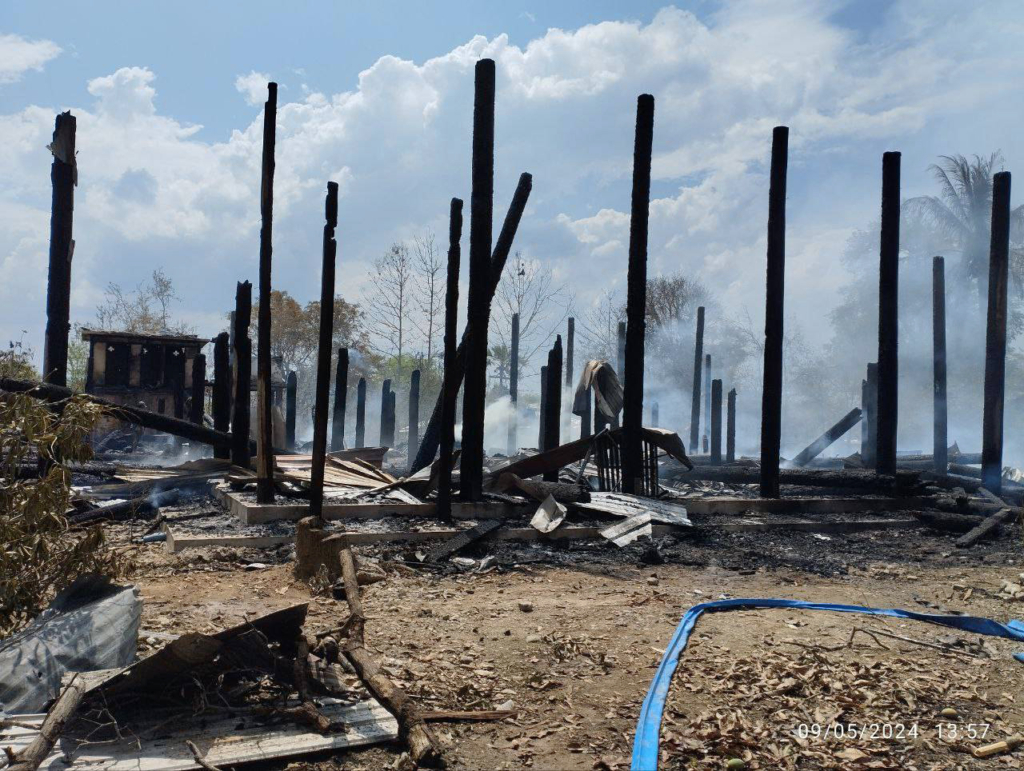Investigation shows military air strike killed 12 civilians and injured 26 as historic monastery in Magway, Central Myanmar attacked
What does the data reveal about jet fuel shipments to Myanmar?
- Data confirms ongoing fuel shipments despite global calls
- Multiple shipments identified between January and June
- Risks of fuel misuse by the military highlighted
Amnesty International uncovered ongoing shipments of aviation fuel to Myanmar despite calls for deprivation of resources to the military following sanctions. Multiple new shipments, primarily from China and Singapore-based companies, have continued to arrive, raising concerns of potential misuse by the military.
What is the impact of military air strikes in Myanmar?
- UN report reveals five-fold increase in air strikes
- Witnesses recount the destruction of a 100-year-old monastery
- Satellite imagery confirms the extent of damage
A surge in military air strikes led by the Myanmar military has resulted in increased civilian casualties and destruction of vital landmarks. In one documented incident, the military targeted a monastery in Magway, resulting in severe damage and loss of lives. Witnesses and satellite images corroborate the devastation inflicted by these attacks.
How is aviation fuel supply chain contributing to the crisis?
- New findings suggest continued fuel shipments to Myanmar
- Concerns raised over complicity of companies and governments
- Risks of fuel misuse for attacks on civilians highlighted
Despite calls for suspending jet fuel shipments, evidence shows that the supply chain remains active, with Chinese and Vietnamese companies facilitating the fuel transfers. Companies involved are urged to cease their involvement to prevent further fueling of military operations against civilians.
“It’s high time that companies put an end to these shipments,” says Agnes Callamard, Secretary General at Amnesty International.
Source: www.amnesty.org

